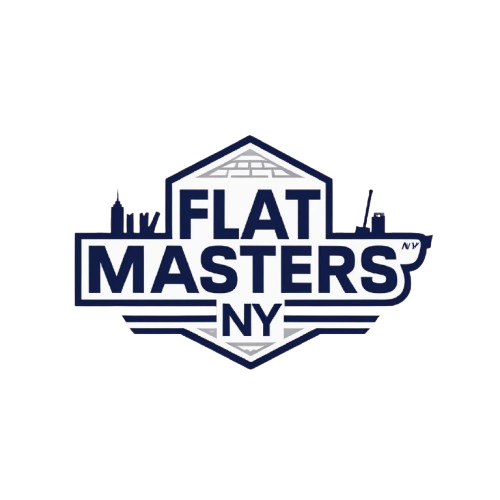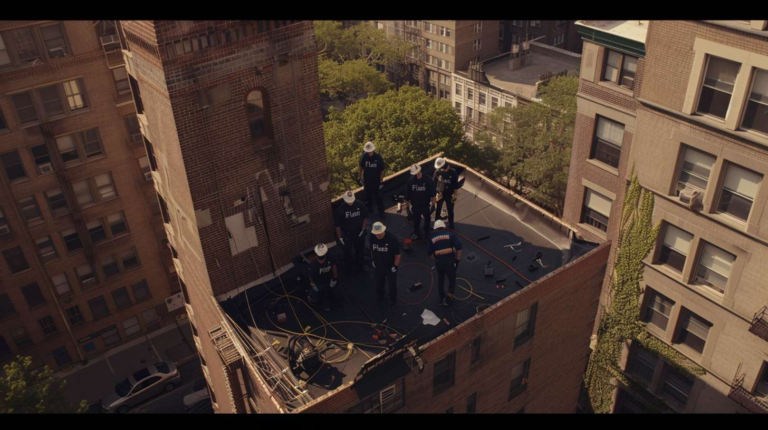Professional Best Flat Roof Coatings Installation Services
Look, after 22 years installing and repairing flat roofs across Queens, I've tested just about every coating system on the market. The best flat roof coatings for our climate here run anywhere from $2.50 to $8.50 per square foot installed, depending on the system you choose and your roof's condition. But here's the thing - price shouldn't be your only consideration when you're looking at protecting what's probably your biggest investment.
At Flat Masters NY, we've applied thousands of gallons of coating across neighborhoods from Astoria to Jamaica, and I can tell you that the best roof coating for a flat roof depends entirely on your specific situation. Last month alone, we coated a 4,200 square foot warehouse in Long Island City with silicone, a brownstone in Forest Hills with acrylic, and a commercial building in Flushing with polyurethane. Three different buildings, three different solutions.
What Makes the Best Flat Roof Coating Systems
So what is the best roof coating for a flat roof? That's like asking what's the best car - it depends on what you need it to do. But after coating roofs from Bayside to Howard Beach, I've narrowed down the top-rated flat roof coating products and options to four main categories that actually work in our Queens weather.
Silicone coatings are hands down my go-to for most residential applications. They run about $3.20 to $5.80 per square foot installed and handle our temperature swings like champions. I remember this job on 108th Street in Corona where the homeowner had tried three different contractors over five years with various patches and repairs. We put down a silicone system in 2019 and it's still performing perfectly. The stuff just doesn't crack when it gets cold, and it sheds water like nothing else.
Acrylic systems come in second for most situations, especially if you're budget-conscious. These typically cost $2.50 to $4.20 per square foot and work great on roofs that don't have major ponding issues. But - and this is important - they don't handle standing water well. I can't tell you how many times I've seen acrylic coatings fail because someone assured the owner their drainage was "good enough." It never is.
Polyurethane: The Heavy-Duty Option
When you need serious protection, polyurethane is where we go. It's more expensive - typically $4.80 to $8.50 per square foot - but this stuff can handle foot traffic, equipment loads, and even occasional ponding. We used it on a restaurant roof in Elmhurst where they needed access for HVAC maintenance, and three years later it still looks like we installed it yesterday.
Here's something most contractors won't tell you about polyurethane: it's all about the prep work. If your roof has any moisture trapped in it, this coating will fail within two years. We always moisture test before applying poly, and sometimes that means waiting for the right weather window. But when it's done right, it's bulletproof.
Flat Roof Coating Options for Different Situations
The climate here in Queens throws everything at our roofs - from August heat that can hit 95+ degrees to January cold snaps down to 15 degrees, plus all that salt air if you're near the water. Your flat roof coating options need to handle these extremes, which is why I typically recommend these specific systems:
- EPDM restoration coatings - Perfect for aging rubber roofs, costs $3.50-$5.20/sq ft
- Modified bitumen coatings - Great for older tar roofs, runs $2.80-$4.50/sq ft
- Metal roof coatings - Specialized for flat metal surfaces, $3.20-$6.10/sq ft
- Spray foam with coating - Ultimate insulation upgrade, $5.50-$9.20/sq ft
Oh, and another thing about metal coatings - if you've got one of those older buildings with a flat metal roof, don't let anyone talk you into a generic coating. Metal expands and contracts differently than membrane roofing, and you need a system designed specifically for that movement. We learned this the hard way on a project in Ridgewood back in 2018.
Why Flat Masters NY Uses Only Premium Coating Systems
I'll be straight with you - there are cheaper options out there. But after watching countless "bargain" coatings fail after two winters, I only install systems I'd put on my own house. We primarily work with Gaco, Tremco, and Henry Company products because they consistently perform in our climate. These manufacturers back their products with real warranties, not just marketing promises.
Our typical installation process takes 2-3 days for most residential roofs, weather permitting. Day one is always inspection and prep - cleaning, minor repairs, primer application. Day two is the base coat application. Day three, if needed, is the topcoat and final inspection. Rush jobs don't work with coatings; the chemistry needs time to cure properly.
Real Performance Numbers from Queens Installations
Look, I don't care what other contractors say about coating lifespans - I track performance on every job we complete. Our silicone systems average 12-15 years before needing recoating. Acrylics typically give us 8-12 years. Polyurethane can go 15-20 years if properly maintained. These aren't manufacturer claims; these are real numbers from real roofs in real Queens weather.
Just last week we inspected a roof in Bayside that we coated in 2012 with silicone. Eleven years later, and it's still performing at about 85% effectiveness. The homeowner called because they thought they needed a new roof, but honestly, it just needs a good cleaning and maybe a maintenance coat in another 2-3 years.
Temperature resistance is crucial here. Summer surface temperatures on dark roofs can hit 160+ degrees, while winter can see -10 degree cold snaps. The best flat roof coating systems we install are tested to handle -40°F to +200°F temperature ranges. Most budget coatings fail these tests miserably.
Common Mistakes with Flat Roof Coatings
The biggest mistake I see is homeowners thinking any coating will work on any roof. Wrong. Your substrate matters enormously. EPDM rubber needs different prep than modified bitumen. Built-up roofs need different primers than single-ply membranes. We've had to strip and redo jobs where the previous contractor used the wrong system entirely.
Another huge issue is moisture testing. If there's moisture trapped in your roof system, no coating will adhere properly. We use electronic moisture meters on every job, and about 20% of the time we find areas that need to dry out before coating. It's frustrating for everyone, but it's the only way to ensure long-term performance.
Timing matters too. We won't apply coatings if rain is expected within 24 hours, if temperatures are below 45°F, or above 90°F during application. I've seen contractors rush jobs in bad weather, and those roofs always fail prematurely.
Choosing the Right Contractor for Your Coating Project
Not all roofing contractors understand coatings properly - it's a specialized skill that requires different equipment and knowledge than traditional roofing. When evaluating contractors, ask to see recent coating projects, not just regular roof work. Ask about their moisture testing procedures, their cure time protocols, and what happens if weather interrupts the job.
At Flat Masters NY, every coating job comes with detailed documentation - moisture readings, surface prep photos, material batch numbers, and application thickness measurements. We're licensed (License 35921), insured, and we guarantee our work because we know our systems and our installation process.
The bottom line on best roof coating for flat roofs is this: the right system, properly installed, will extend your roof's life by 10-20 years and save you thousands compared to replacement. The wrong system, or the right system poorly installed, will fail within 2-3 years and potentially damage your existing roof membrane.
If you're in Queens and need honest advice about coating options for your flat roof, give us a call at (917) 994-7618. We'll come out, do a proper inspection, test for moisture, and give you a straight answer about whether coating makes sense for your situation. Sometimes replacement is actually the better option, and we'll tell you that too.


